Everything in the world is connected organically. Everything changes and develops together. Artist Jung Jisook creates works of art by molding the emotions and realizations she experienced while breathing with the world into clay. Her world, expressed through form, color and texture, reaches others and evokes new thoughts and feelings. The principles of the world live and breathe through Jung Jisook’s work, from the moment a piece is created to the moment it is finished.
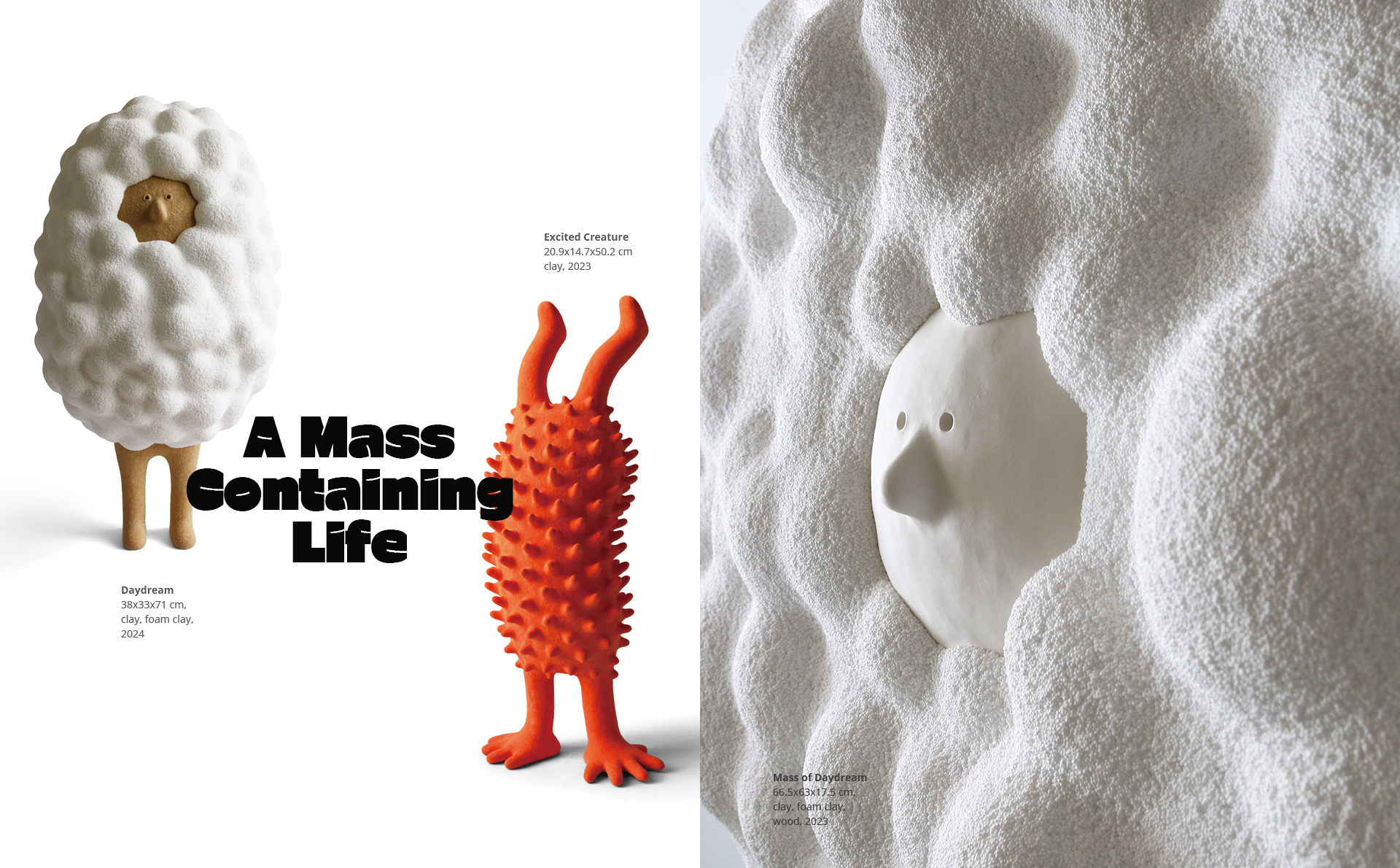
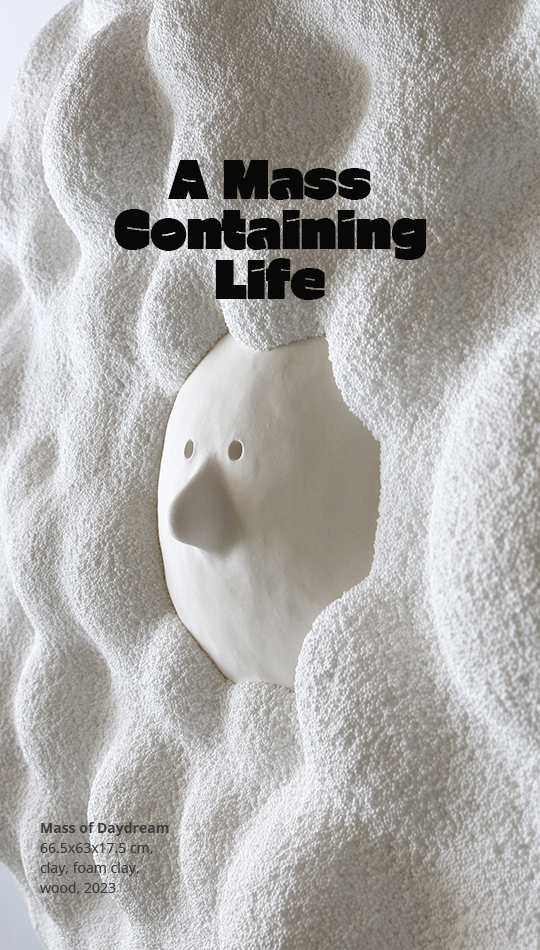
Writer.
Sung Ji Yeon
Photos courtesy of.
Jung Jisook
Jung Jisook
Q. Could you explain your different series?
My perspective on the world changes as time passes, leading to a new series’s birth. Mass of Feeling is a series from when I felt my internal and external circumstances were confusing and incomprehensible. I observed and studied them because I wanted to understand them. I projected what I discovered into my work, and the work took on the character of an inner self-portrait.
The next series is Flowing Mass. This series is from when I felt that everything, including myself, was organically connected to me and the world while constantly changing. I think that was when I truly began to understand the world.
Living Mass is a series that came about naturally as I thought about death when I first felt physical aging in my mid-thirties. All actions of living things are “for the sake of living.” As I realized this, I took another look at the world and myself, and everything became more interesting.
As the three themes progressed, the materials and techniques of the work gradually became more diverse. The appearance eventually became simpler, and the boundaries became more ambiguous.
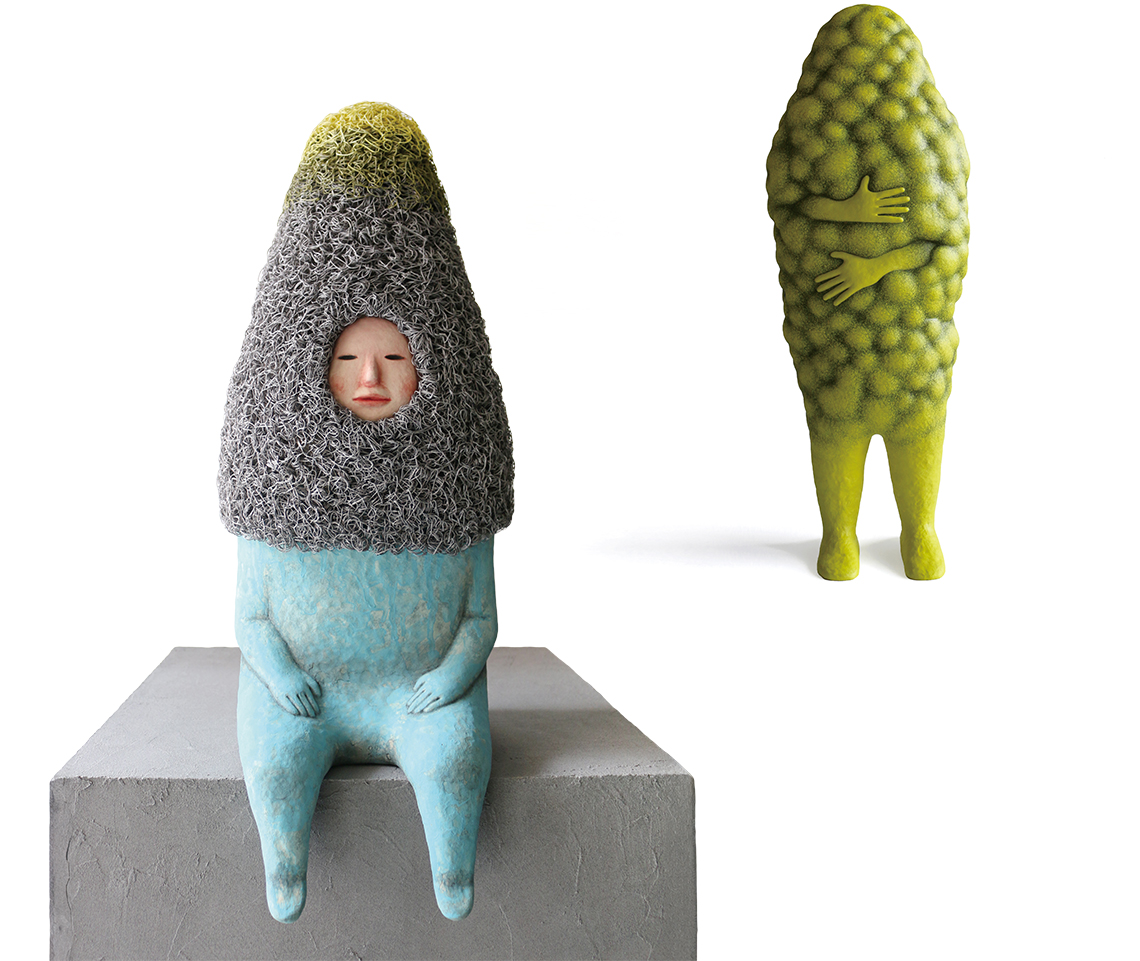 (Left) Mass of Thought, clay, paper wire, 27x31x68 cm, 2016
(Left) Mass of Thought, clay, paper wire, 27x31x68 cm, 2016 (Right) Fullness, acrylic and pencil on clay, 33x22x93 cm, 2021
Q. Why are the themes related to life or living beings?
I’m an artist, but I’m also a living being. That’s why I naturally empathize with conscious beings. Don’t we all know that there’s an end? And yet we constantly desire something. The fate we face is both amazing and sad at the same time. That’s why, as a fellow living being, I want to talk about and express life itself.
Q. Why do the faces in your works seem emotionless, while the colors and textures are intense?
First of all, the “something” I want to express is not a clear image or concept. Showcasing this through the expression of a character can be too direct or a fragmentary interpretation. Plus, isn’t it more attractive to have a more metaphorical form of art that goes beyond the artist’s intentions and can become more intertwined with the world and the audience? I expressed what I felt, but I don’t think it evokes the same sentiment for everyone. In other words, I didn’t want to force a specific interpretation because I don’t think my judgment is the correct answer.
Q. Can you explain your work process?
First, I decide on the theme, closely tied to my identity as Jung Jisook. I design each piece based on my interests. For example, if I’m interested in “being alive,” I observe my daily life and sketch related images. When starting the work, I review my notes and choose a plan that best translates the idea into a three-dimensional form. I select materials and techniques accordingly and begin. While the shape, color and materials may change during the process, I don’t mind.
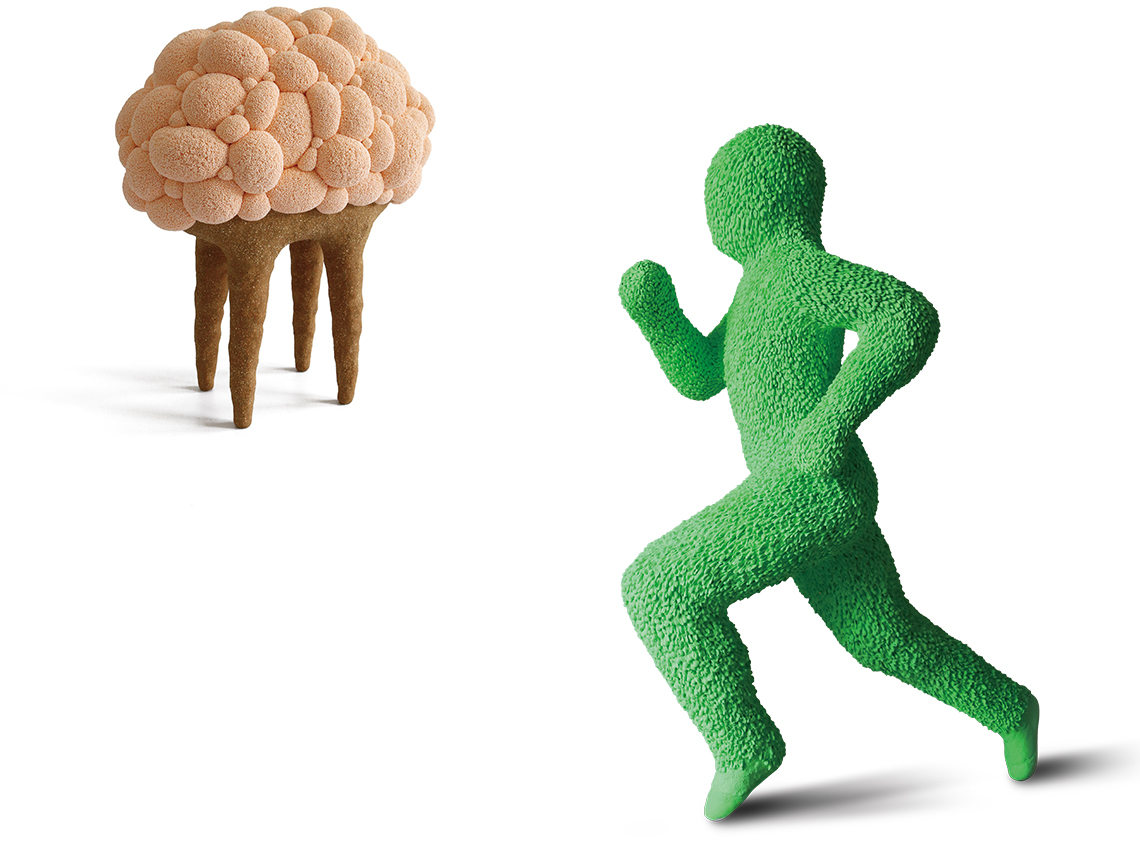 (Left) Mass of Life, clay, foam clay, 29x20x36 cm, 2022
(Left) Mass of Life, clay, foam clay, 29x20x36 cm, 2022 (Right) Human Who Runs on the Field, mannequin, synthetic resin, 92x49x132.5 cm, 2024
Q. Why do you mainly use clay?
Clay is soft and malleable, allowing me to shape it quickly without much stress. I enjoy how it enables me to express the images that come to mind by utilizing its unique characteristics. However, I don’t limit myself to clay. I use anything that effectively captures the shape, texture or idea I envision. So far, I’ve worked with urethane foam, foam clay, beads, wire and epoxy.
Q. What’s most important when working?
I think the most important thing would be, “Is the result of the work sensorily interesting?” First, my childish and animalistic side seeks continuous fun and stimulation, so I try to sufficiently express that in my work. Second, I always work with the mindset that there are people who appreciate what I create. I feel like the more sensory information they get from my work, the more actively they communicate with me.
Q. What message do you want people to take from your work, and what are your future aspirations?
I focus more on providing sensory stimulation than conveying specific meanings through my work―the more diverse and impactful the stimulation, the better. I hope it adds vibrancy to people’s daily lives.
My goal is to become a globally recognized artist. To achieve this, I plan to carry out projects I’ve prepared, starting with my first solo exhibition in Taiwan, which will be held from Nov. 16 to Dec. 1 at the Taipei Gallery.
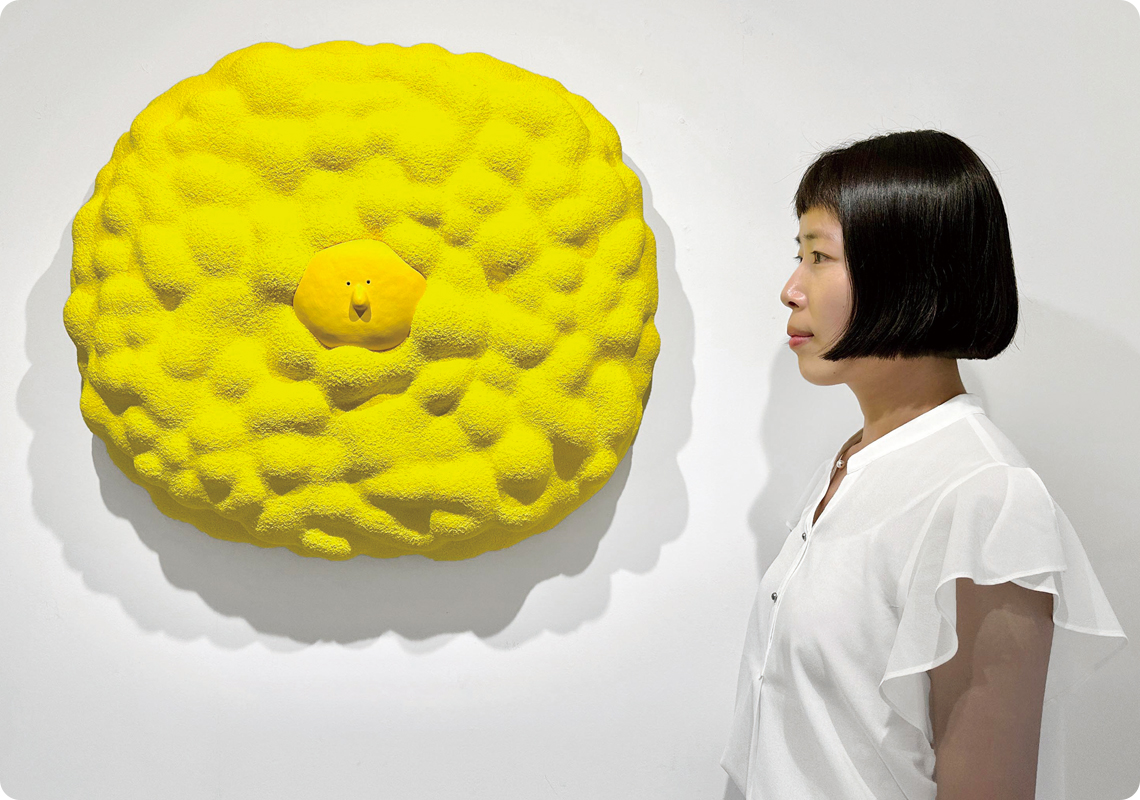 Jung Jisook
Jung Jisook